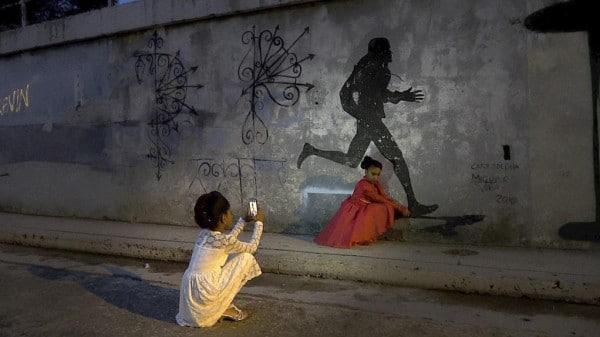Can the problems tourism cause ever be solved? Is it possible for a country’s history, working class, art and culture to be respected by those who visit for a getaway? Cuba’s dignity has been, according to Cubans in Epicentro, destroyed by the tourists. Hubert Sauper’s fourth documentary Epicentro tries to solve the problem he himself as a tourist contributes to by filming and focusing on the lower class of Cuba. In his piece, though visually gorgeous and charming, he is further cementing the problem he is trying to fix: perpetuating the commodification of Cuban people by romanticizing their poverty.
Tourism enables foreigners to view Cuba, its people, culture, and history in passing rather than understanding the lives of the populace. Sauper’s film attempts to platform the lower class but they’re shown to the viewer as the stereotypical street savoir faire, a poor commodity for Western consumption (via tourism, or in this case, film-going) rather than full individuals. It’s not unlike an adult Oliver and Company, where Cubans are the poor street dog whom tourist and viewer adore through their humility and hipness.
It’s not all bad though. Sauper’s efforts to give the children and working class of Cuba a platform results in countless moments of authentic Cuban life, music, childhood, culture, history, and class struggle. Leonelis Arango Salas, the young girl and main focus of the documentary, acts as the tour guide and is the perfect chaperon. As a child she, like tourists, has no real responsibility and Havana becomes her personal playground. Her Cuba is friendly, fun, and fulfilling. She’s vivacious, full of life and loves to take pictures of herself with her friends. And She and all Cubans Sauper introduces are well educated on Cuban history, well versed in politics and are deeply patriotic.
In the documentary, a love letter to film is written by Sauper. He shows countless snippets of films being shown in outdoor theatres with children watching, wide-eyed. The influence of film on the children is undeniable, Leonelis wishes to be an actress and a classroom of young children boo at a film that depicts America in a positive light, calling the film a lie.
Sauper’s confusion and conflict over how cinema distorts people’s perceptions is extremely present in Epicentro. His film itself distorts the reality of the Cuban people by glamorizing them and their poverty rather than giving them due dignity and respect.
Sauper struggles with this, but to no resolution and no point. He realizes there’s virtually no way to film a disenfranchised population without romanticizing them and their poverty, and yet he continues to make the film. Why? The film is a commentary on his guilt for travelling and in compensation for this, he tries to give the working class a sympathetic ear.
Shouldn’t we demand more from the films we consume rather than devour lazy commentary that dehumanizes the subject? Sauper’s efforts to combat distance between tourists and Cubans perpetuates the problem. And though the film is touching, the commodification of Cubans for Western consumption and pity is jarring. Epicentro is a gorgeous film made stale by a failed attempt to breathe dignity into those one unconsciously views as less than.










